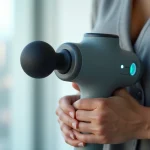The persistent ringing, buzzing, or whistling sound that some individuals experience is known as tinnitus. It’s a symptom reflecting an issue within the auditory system rather than an independent disease. For some, it’s a minor annoyance, while for others, it’s a debilitating condition affecting their quality of life. This unsettling health issue requires meaningful interventions to help affected patients. Tinnitus affects approximately 15% of the global population, according to data from the American Tinnitus Association.
UK audiologists have been at the forefront of providing comprehensive treatment and management strategies for patients grappling with tinnitus. Their efforts have primarily focused on using advanced hearing aids, implementing sound therapy, and conducting clinical trials to determine more effective treatment methods. This article delves into the different ways in which UK audiologists are helping patients manage tinnitus and its daily disruptions.
Also to read : What role can UK pediatricians play in preventing childhood obesity through early intervention?
The Role of Hearing Aids in Tinnitus Management
The intricate link between tinnitus and hearing loss is well-established, with many patients experiencing both. The use of hearing aids has, therefore, become a pivotal part of the solution. Hearing aids can assist in reducing the perception of tinnitus by improving the ability to hear ambient sounds, which in turn masks the internal noise generated by tinnitus.
A 2017 study reported that 60% of tinnitus patients who used hearing aids for 12 weeks saw a significant reduction in their symptoms. The use of hearing aids also improved the patients’ quality of life by reducing the impact of tinnitus on their daily activities.
This might interest you : In what ways can UK general practitioners facilitate early detection of type 2 diabetes?
Latest technological advancements have seen the integration of tinnitus-specific features in hearing aids. These include noise generators and zen tones, which help to divert the patient’s attention away from the tinnitus sound, thus making it less bothersome. This approach is commonly referred to as sound therapy and is gaining traction among UK audiologists in managing tinnitus.
Sound Therapy: An Effective Coping Mechanism
Sound therapy involves the use of external noise to alter a patient’s perception of their tinnitus. In essence, the therapy aims to train the brain to focus on sounds other than the bothersome noise generated by tinnitus, thus reducing the patient’s awareness and annoyance.
It is not a one-size-fits-all approach; audiologists tailor the therapy to suit the individual needs of each patient. For some, it involves listening to neutral sounds, while for others, customized sound profiles may be more beneficial.
Sound therapy can be delivered through various devices, including hearing aids, tabletop sound generators, and even smartphone applications. The choice of delivery method will depend on the patient’s lifestyle, severity of tinnitus, and the presence of any associated hearing loss.
A recent study found that sound therapy, when combined with counseling, significantly improved the tinnitus severity scores in 80% of the participants after 12 weeks. These promising results endorse sound therapy as a staple in comprehensive tinnitus management plans.
The Imperative Role of Clinical Trials
Clinical trials play a crucial role in advancing our understanding of tinnitus and how best to manage it. They provide invaluable data, helping researchers and health professionals develop better strategies and treatment modalities. For patients, participating in these trials offers the opportunity to access novel and potentially beneficial treatments.
UK audiologists have been instrumental in conducting and participating in various clinical trials aimed at understanding this complex condition better. These trials often revolve around studying the effectiveness of different treatment options, such as Cognitive Behavioural Therapy (CBT), Tinnitus Retraining Therapy (TRT), and various drug trials.
One such trial, the Tinnitus E-Programme, studied the effectiveness of an internet-based CBT treatment program for tinnitus sufferers. The study reported significant improvements in tinnitus distress and impairment in the participants, demonstrating the potential benefits of digital health interventions.
The Power of Patient Education and Support Groups
Empowering patients with the right knowledge about their condition can significantly improve their ability to manage it. UK audiologists have thus made patient education a cornerstone of their approach to tinnitus management.
They provide resources that help patients understand what tinnitus is, its potential triggers, and how it can be managed. This process involves teaching patients about the role of sound therapy, the benefits of hearing aids, and how lifestyle changes can help manage tinnitus.
In addition, support groups have proved to be immensely beneficial in helping patients cope with their condition. In these groups, patients can share their experiences, learn from others, and gain reassurance that they are not alone in their struggle. UK audiologists often refer their patients to such groups as part of a holistic approach to managing tinnitus.
The multi-faceted approach adopted by UK audiologists, encompassing advanced hearing aids, sound therapy, clinical trials, patient education, and support groups, is helping to transform the lives of many tinnitus patients. As research continues to evolve, so too will the strategies and treatments available to clinicians and patients.
The Promise of Digital Health Interventions
The digital age has revolutionised the way healthcare is delivered, and the management of tinnitus is no exception. Digital health interventions such as smartphone applications and online therapy programmes have become crucial tools in the audiologists’ arsenal.
In the context of tinnitus management, these digital health interventions offer a range of benefits. They provide patients with instant access to therapeutic exercises, educational resources, and support networks – all at the touch of a button. This level of accessibility can significantly improve patients’ engagement with their treatment regime, leading to better outcomes.
Take, for instance, smartphone applications designed to deliver sound therapy. These apps offer a range of sounds tailored to the individual’s tinnitus profile, thereby helping to mask the bothersome noise. Patients can easily adjust the volume and type of sound based on their comfort, making it a personalised and flexible approach to sound therapy.
Online cognitive behavioural therapy (CBT) programmes are another promising digital health intervention. They offer structured therapy sessions that patients can complete at their own pace, from the comfort of their homes. These programmes often incorporate elements of education, mindfulness, and coping mechanisms, thereby equipping patients with strategies to manage their tinnitus effectively.
Several studies have reported positive outcomes with these digital health interventions. For example, a study published in The Lancet found that an internet-based CBT programme significantly improved tinnitus severity and quality of life in 73% of the patients after six weeks of therapy.
Conclusion: Navigating the Journey Together
Managing tinnitus can undoubtedly be a challenging journey filled with uncertainties. However, the dedication and efforts of UK audiologists in seeking innovative treatment modalities and management strategies are making a significant difference in tinnitus patients’ lives.
The use of advanced hearing aids, sound therapy, patient education, support groups, and the emergence of digital health interventions have all contributed to a comprehensive and personalised approach to managing tinnitus. The remarkable progress made in clinical trials, particularly in the field of cognitive behavioural therapy and digital interventions, is promising.
The common thread running through all these strategies is the patient-centric approach. UK audiologists understand that every patient’s tinnitus journey is different. Therefore, they tailor their strategies to suit the individual needs of each patient, ensuring they receive the most effective and appropriate treatment.
The future of tinnitus management looks promising, thanks to the continuous advancements in research and technology. As we continue to learn more about this complex condition, it is hoped that more effective treatment options will emerge, further improving the quality of life for those living with tinnitus.
In conclusion, managing tinnitus is a collaborative journey, and UK audiologists are committed to navigating this journey together with their patients – providing the support, guidance, and treatment necessary to help them live better, fuller lives in spite of their condition.











